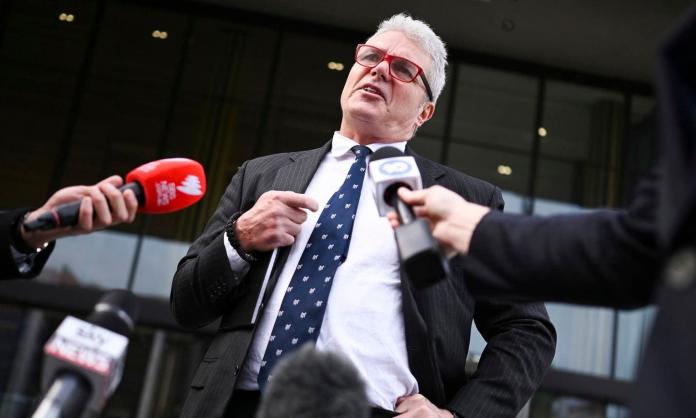David McBride, the former military lawyer who exposed Australian war crimes in Afghanistan, will face trial next year after Commonwealth lawyers intervened to suppress the use of crucial evidence that reportedly would have granted him whistleblower protection.
McBride leaked documents to the ABC—known as the “Afghan Files”—detailing horrific acts carried out by Australian special forces (SAS) between 2009 and 2013, including several unlawful killings. One incident involved the shooting of an unarmed 14-year-old boy, Khan Mohammed, as he was collecting figs near his home in Kandahar province. Another was the shooting from a helicopter of three unarmed civilians in Jalbay after a suspected Taliban insurgent couldn’t be located. The documents also revealed evidence that Australian soldiers had been severing the hands of dead Afghans.
The leaks, which led to a police raid of the ABC headquarters, were central to the initiation of the Brereton Report—an investigation into the alleged war crimes. The report revealed a culture of brutality and cover-up among SAS soldiers in Afghanistan, including the unlawful killings of 39 Afghan civilians, the shooting of an unarmed intellectually disabled man in the back of the head, executions of unarmed or handcuffed detainees and the planting of AK-47s on dead bodies.
Whistleblowers such as McBride should be commended. Instead, the government is persecuting him. The Commonwealth argued for the suppression of McBride’s evidence on the basis that its release would go against the public interest. McBride told reporters outside the ACT supreme court: “The government played the national security card to the absolute hilt”.
It is within the power of the attorney-general to intervene and end McBride’s prosecution. But McBride told Michael West Media’s Callum Foote: “The attorney-general’s office never looks at the merits of the case, they just get told that this guy is an enemy of the department, go for it. The attorney-general only changes tack under public pressure, such as in the case of Bernard Collaery”.
Collaery was charged in 2018 with disclosing protected intelligence information. The case relates to the Australia–East Timor spying scandal, in which the Australian government bugged East Timor’s Cabinet offices to gain an advantage during commercial negotiations to carve up the resource-rich Timor Sea.
After concerns were raised by a deal struck between China and the Solomon Islands and after a public call by East Timor’s president to drop charges against Collaery, Foreign Minister Penny Wong visited the island. Soon after, the charges were dropped.
A similar situation appears unlikely for McBride.
“Considering [the government] has ongoing whistleblower cases, despite having promised further protections in the National Anti-Corruption Commission bill, they’ve suspiciously left out a whistleblower protection agency”, He told Foote. “Why wouldn’t they do that? What downside for the government in legislating one? It’s hard not to think that they have bad intentions by not doing it, given they haven’t even explained why.”
Whether the new Anti-Corruption Commission commits to protecting whistleblowers is yet to be seen. McBride’s situation makes clear, however, that the Albanese government’s commitment to transparency is skin deep.
McBride has performed a great service and should be protected.








